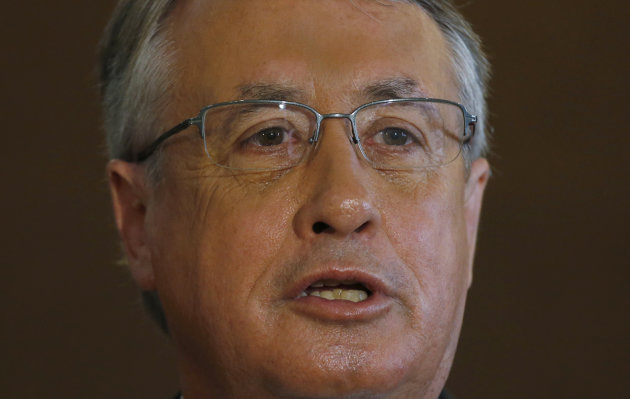
CANBERRA, Australia (AP) — Australia's deputy prime minister warned Friday that the greatest threat to the U.S. economy are the "cranks and crazies" in the Republican Party, a rare foray into American domestic politics that was blasted by the opposition.
Wayne Swan, who also is treasurer and his center-left Labor Party government's
ranking finance minister, took aim at the tea party during a speech to a
business forum, breaking a convention among Australia's major parties
to steer clear of U.S. domestic political debates.
"Let's
be blunt and acknowledge the biggest threat to the world's biggest
economy are the cranks and crazies that have taken over a part of the
Republican Party," Swan said.
He
said "the extreme right tea party wing" of the Republican Party had
held the national interest hostage during last year's debate over the
U.S. borrowing limit despite President Barack Obama's "goodwill and strong efforts."
He
said it was imperative that Congress reach an agreement to support
growth and avoid a "fiscal cliff" of deep government spending cuts and
higher taxes in January, which he said could push the U.S. economy back
into recession.
The conservative opposition said Swan's speech betrayed his "hatred" of Republicans.
"The Labor Party
is peddling hatred and they're got to stop," opposition treasury
spokesman Joe Hockey told reporters. "They hate the Republican Party.
I'd like Wayne Swan to say something positive about someone somewhere."
Prime Minister Julia Gillard, who travels to New York next week to address the U.N. General Assembly, defended her deputy's comments as "appropriate."
"What
happens in the U.S. economy matters to the world economy and it matters
to us," she told reporters. "Wayne Swan was making that very common
sense point today."
Adam
Lockyer, a lecturer at Sydney University's U.S. Studies Center,
described Swan's speech as "a clumsy political move" that left him open
to attack from his political enemies.
Lockyer
said Swan might have been attempting to link the tea party to the
obstructionism of the Australian opposition, which has thwarted Labor's
legislative agenda in a finely-balanced Parliament.
Australia
has long maintained that its close relationship with Washington, and
its 61-year-old defense alliance, remains strong regardless of who is in
the White House.
Former
conservative Prime Minister John Howard was widely criticized in 2007
when he claimed Obama, then a Democratic presidential nominee,
represented al-Qaida's interests.
Howard,
a staunch U.S. ally in the Iraq war who lost elections later that year
after 11 years in power, created one of the first controversies of
Obama's presidential campaign by attacking his plan to withdraw troops.
Link:

No comments:
Post a Comment